Sustainable Food Systems in Europe:
The Role of SMEs in Addressing Food Security
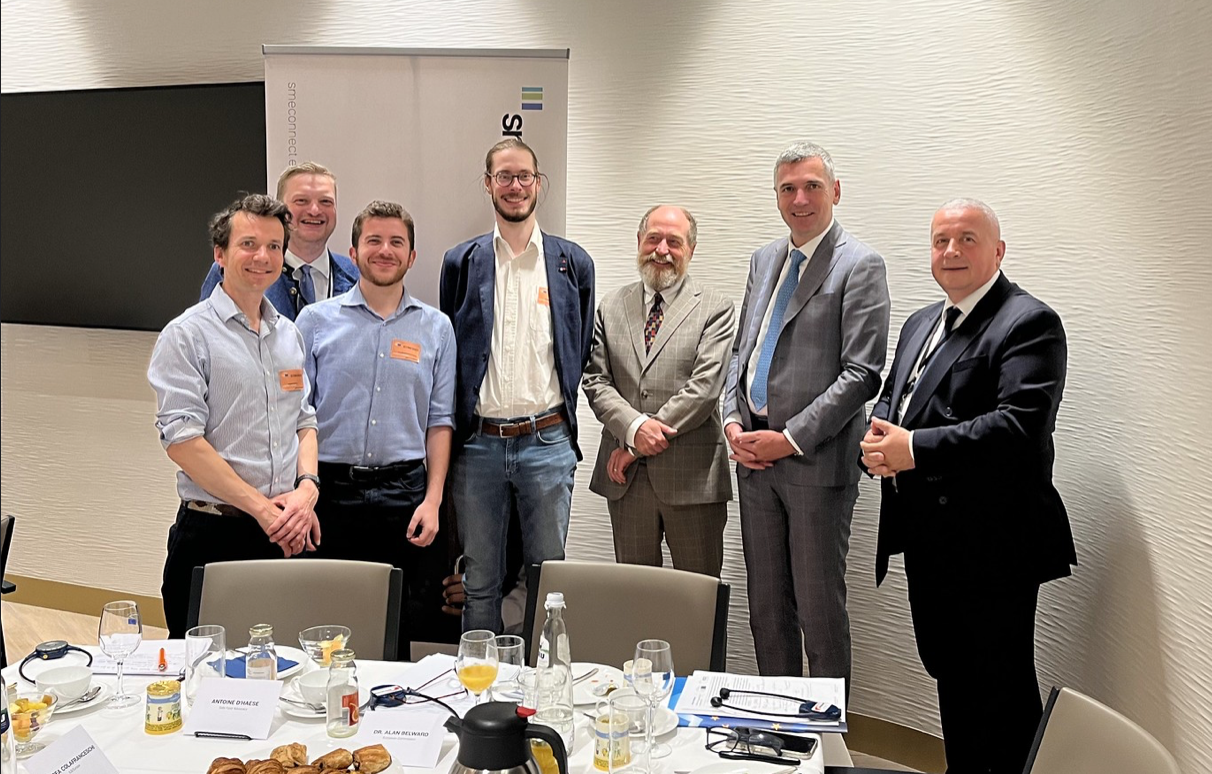
On Wednesday, June 7th, SME Connect in partnership with EPP Group organized a discussion in a format of a working breakfast on “Sustainable Food Systems: The Role of SMEs in Addressing Food Security” in the European Parliament. The event was hosted by Herbert Dorfmann MEP, Committee on Agriculture and Rural Development, SME Connect Board Member; with participation of Daniel Buda MEP, Vice-Chair Committee on Agriculture and Rural Development; Dr. Alan Belward, Head of Unit Food Security (JRC.D.5) at the European Commission; William Surman, Director of Strategic Communications, Public Affairs and ESG at FoodDrinkEurope; Andrea Colafranceschi, EU Project Officer at ILSI Europe; and Antoine D’Haese, EU Project Manager at Safe Food Advocacy. The debate was moderated by Dr. Horst Heitz, Chair of the Steering Committee at SME Connect.
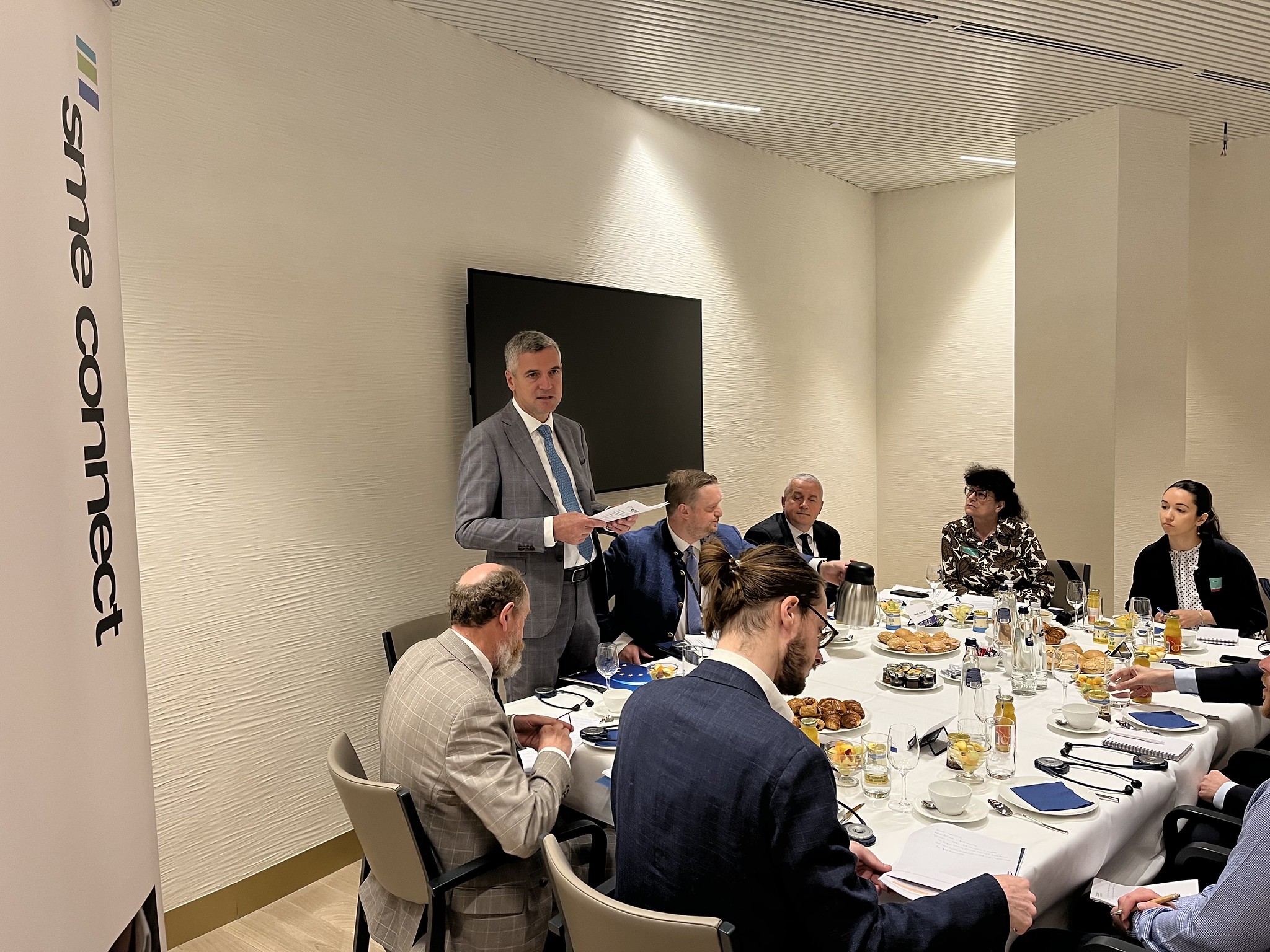
Herbert Dorfmann opened the panel stating that food security is a relevantly new discussion topic in the European Parliament, but nevertheless one of the most important one. The most important and relevant industry on this continent is still a food industry. The SMEs have an important role in food systems, but unfortunately it is not mentioned very often.
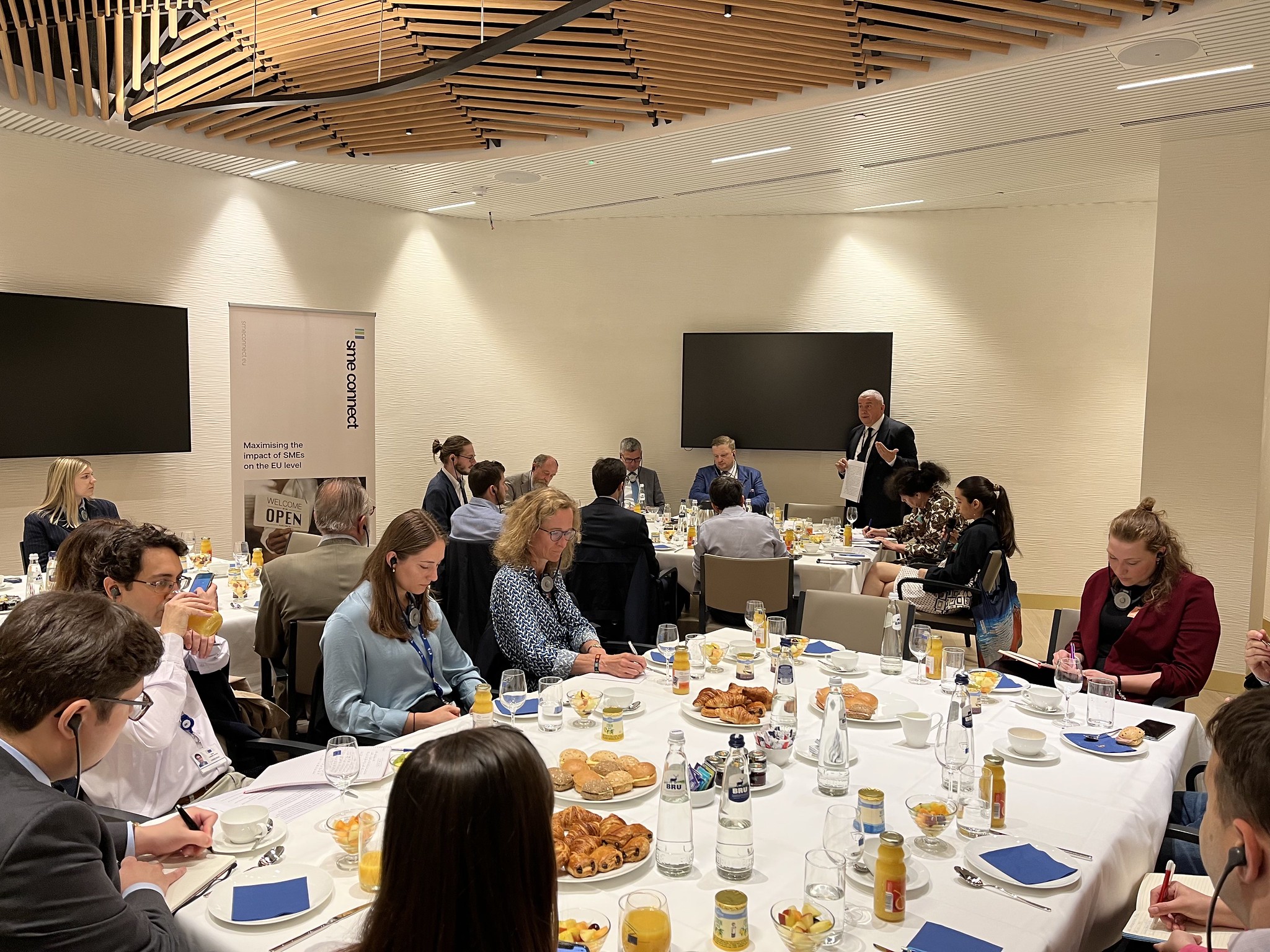
Daniel Buda stated that food security is also important outside of the European Union. If we don’t look for a global solution and provide financial support, there will be hunger spreading and therefore migration into Europe. Agriculture in Eastern Europe needs a link between science, SMEs and agriculture. The rural areas need infrastructure and digitalisation.
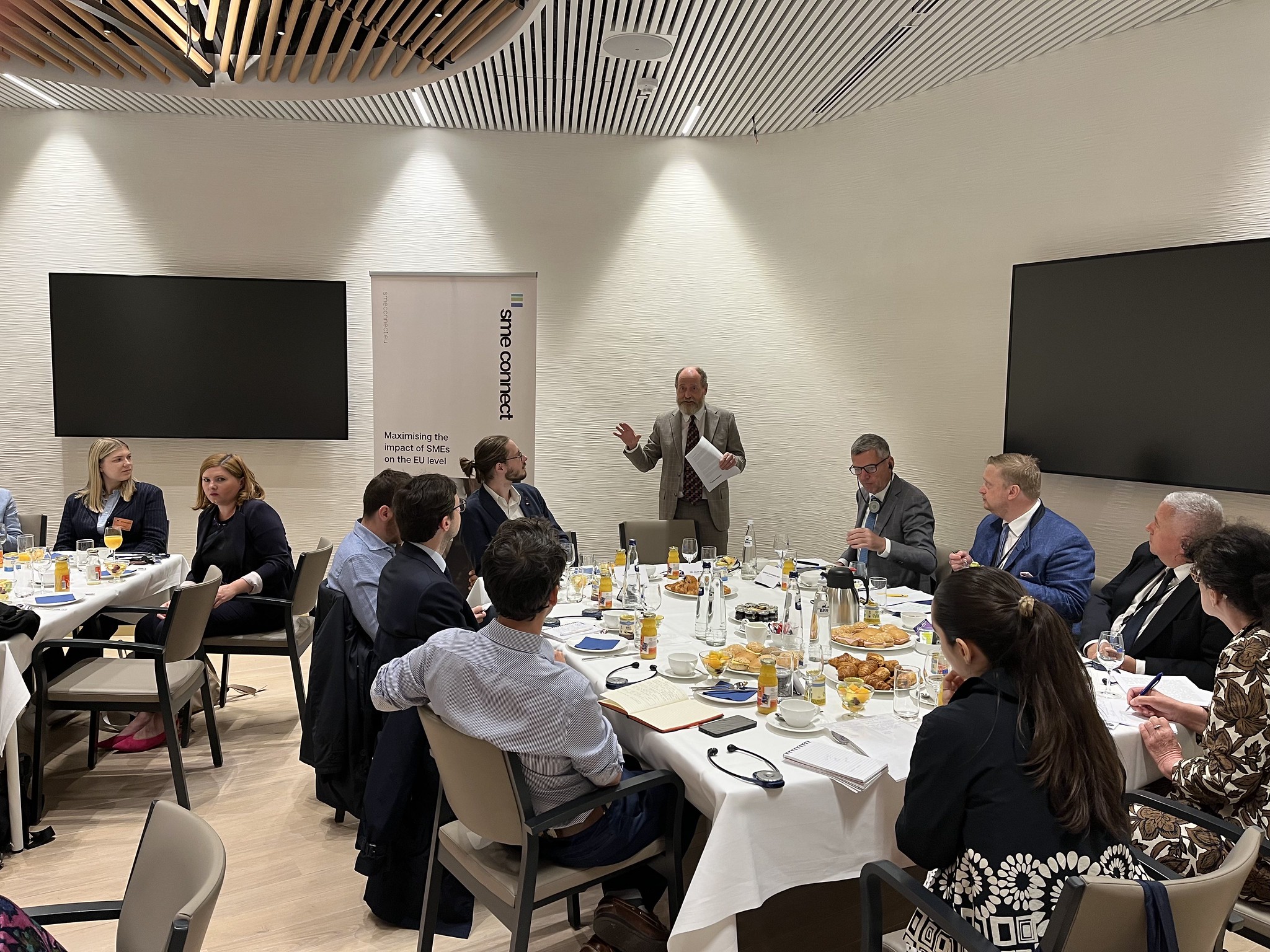
Alan Belward pointed out that the years 2022-2023 show that climate extreme is the new normal, together with the economic shocks. We are facing the world’s worst food and nutrition crisis since the second world war. On the production side, only 1% of the farmers have an annual turnover over 500 000€. Reality is that 57% of farmers have the turnover that is less than 50 000€. SMEs play hugely important role in the food systems and reaching the final customer. There are three areas where SMEs are absolutely crucial – first, climate smarter agriculture, agroecology and the digital area. We must incentivise good and bad behaviour in the agricultural sector, otherwise it won’t work.
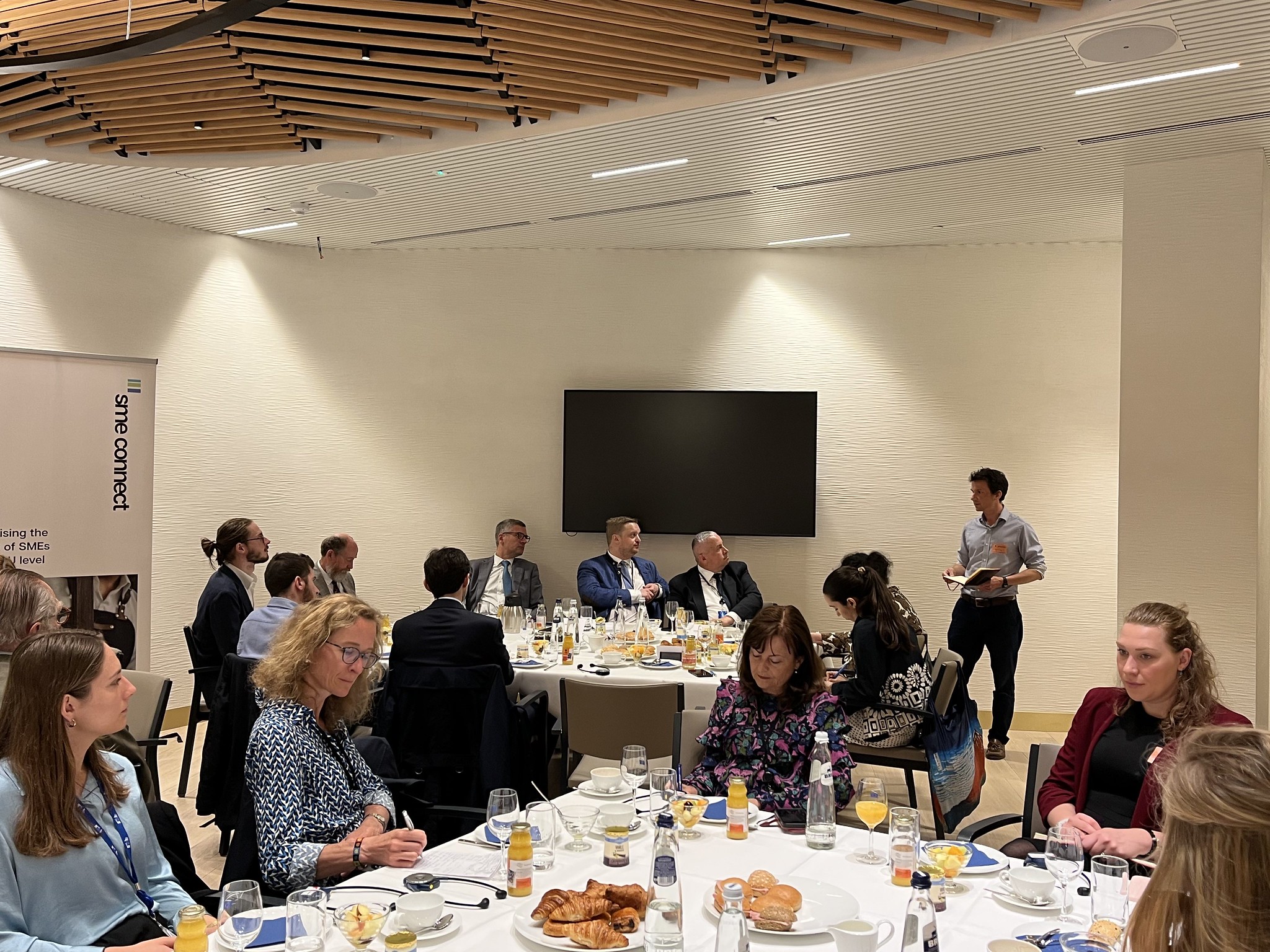
William Surman said that 99% of the food manufacturing industry are SMEs, in numbers they are 300 000 in Europe. The SMEs are the beating heart which is necessary for a living food economy. For the resilience and sustainability of SMEs, indeed, covid, inflation, the war in Ukraine and the rising energy prices are huge stress tests. The SMEs must work in their main business, therefore the European Union has to reach out to them, because the SMEs do not always have the capacity to come to the European Union themselves. The EU regulations are a burden for the SMEs, therefore only crucial and undeniably necessary topics should be regulated.
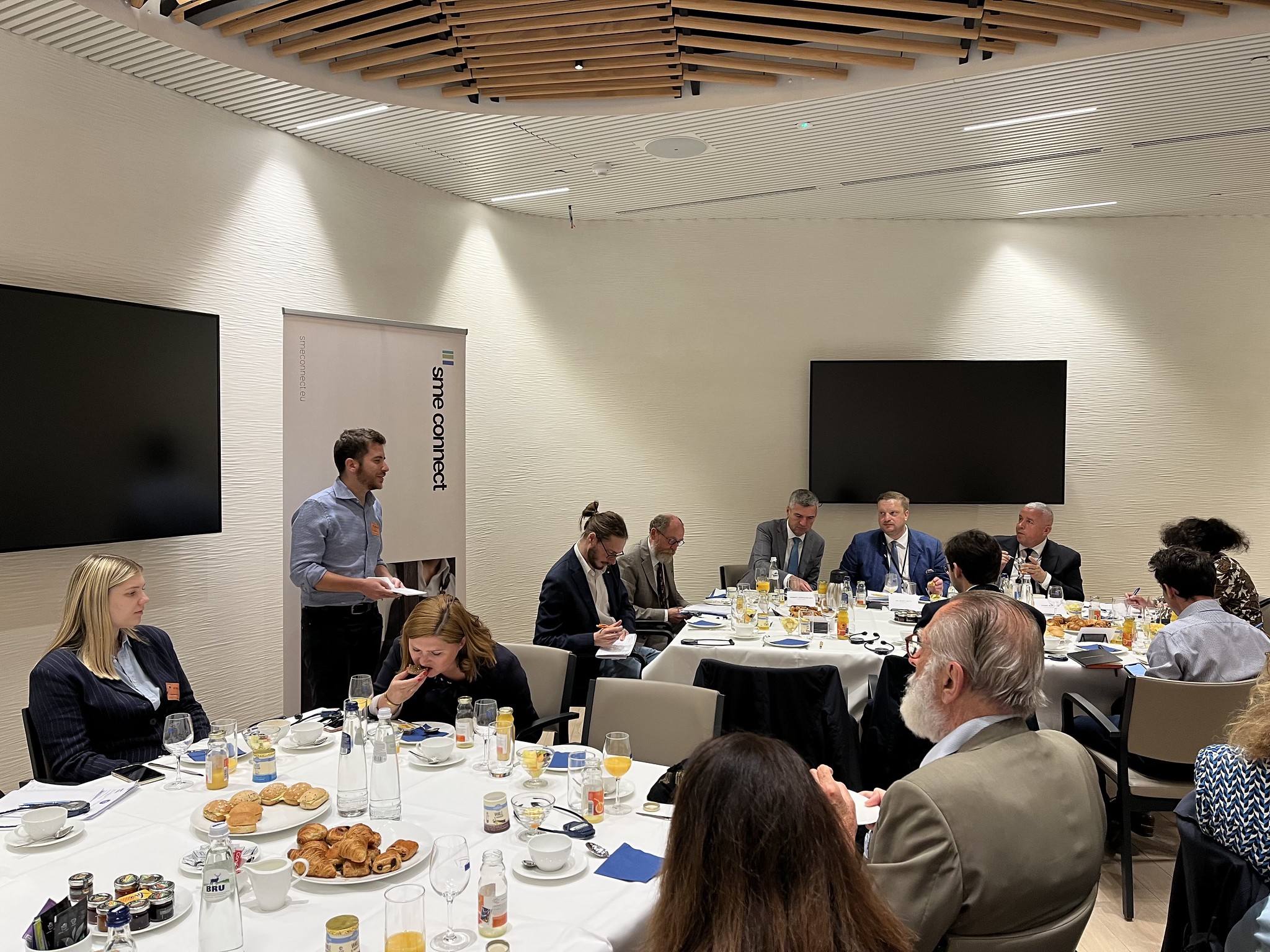
Andrea Colafanceschi followed up with a view from Italy. He highlighted that SMEs need to be innovative to be competitive. We can benefit a lot from innovative digital tools such as precision farming and even artificial intelligence to educate especially youth and children about making healthy choices when it comes to nutrition and eating habits. Not only the quantity and access to food is important, but also the quality of food production, where SMEs have a large impact.
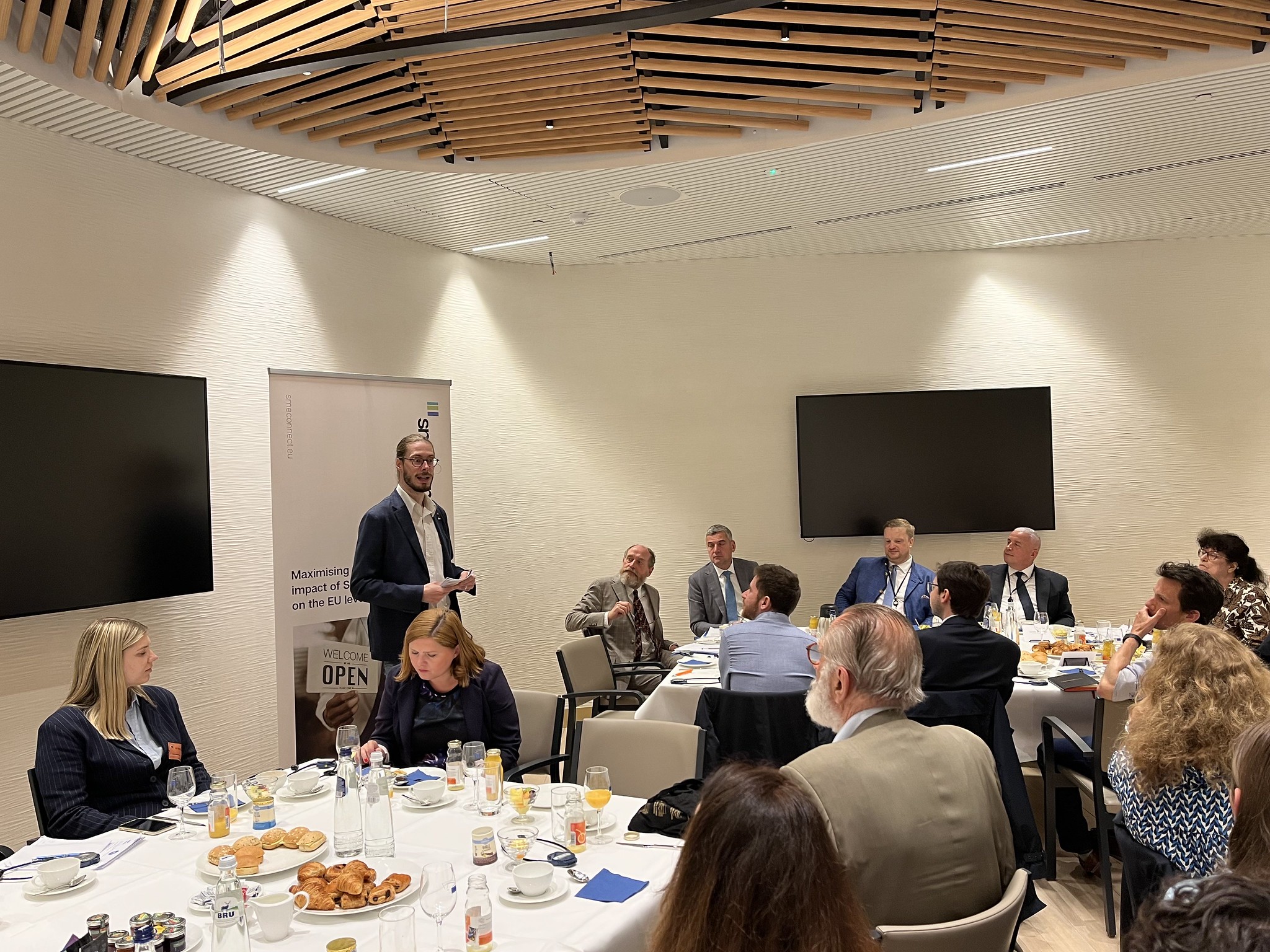
Antoine D´Haese talked about resilient, innovative, and social sustainable food production. He concluded that sustainable food security changed in the last years, as well as the debate about it. Today’s food which contains lots of fat, sugar or salt, is more easily accessible than local and healthy edibles, therefore the food system must be changed for the health of the people. The food supply chain must be rebalanced, so that everyone who produces healthier food is benefiting from the system. He strongly believes the balancing could be done by the EU regulation.